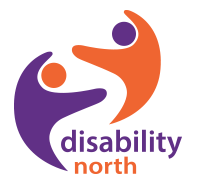The government’s continuing failure to produce accessible information and guidance to help disabled people protect themselves during the coronavirus crisis is unacceptable and will cost lives, disabled people’s organisations have warned.
Disabled campaigners spoke out after the Department of Health and Social Care (DHSC) failed yet again to publish guidance for disabled people who use direct payments and employ personal assistants (PAs) on how to protect themselves and their staff during the pandemic.
It is now more than a month since DHSC published its first COVID-19 action plan (3 March).
Tomorrow (Friday), it will be four weeks since ministers produced guidance for the wider social care sector, which was aimed at service-providers in the residential care, supported living and home care sectors, but not at disabled people who employ their own PAs.
Last week, a DHSC spokesperson said that guidance for disabled people who use direct payments would be published “shortly”.
But DHSC had not responded to a request for updated information by noon today (Thursday), more than a week after that promise was made.
Inclusion London, the pan-London disabled people’s organisation, said the government’s ongoing failure to produce “accessible and targeted information and guidance” for Deaf and disabled people was not acceptable.
Tracey Lazard, chief executive of Inclusion London, said: “The additional stress, confusion and anxiety this is causing cannot be overestimated. It will also cost lives.”
As well as the failure to produce guidance for recipients of direct payments, she also pointed to the lack of a British Sign Language (BSL) interpreter at the daily televised UK government COVID-19 briefings, and the failure to produce information on how to secure personal protective equipment (PPE) to protect disabled people and their PAs from the virus.
She said: “Both local and central government must act now.
“We need accessible, consistent and clear guidance from both central and local government on a range of welfare, Access to Work and social care/direct payments issues including PPE.
“We also need local authorities to urgently and actively work with Deaf and disabled people’s organisations to develop information, guidance and resources that directly address our priority needs and concerns.”
Mark Williams, from the grassroots disabled people’s organisation Bristol Reclaiming Independent Living (BRIL), said: “As an employer of PAs I have been dismayed and horrified at the lack of information for individual disabled people who employ PAs.
“At the moment, with the country in lockdown, we are one of the few remaining areas of essential employment trying to carry on as normal, but we need to have the right equipment and information to do that.
“The failure to provide any information puts many disabled people’s lives on the line, and PAs are starting to refuse to come to work.”
Williams said he watched press conferences every day from the UK, Scottish and Welsh governments, but the UK government’s press conference in London was the only one where there was no BSL interpreter.
A BRIL spokesperson added: “People are already feeling under threat; the lack of guidance from central government is adding to the anxiety felt by hundreds of thousands of people across the country.
“We know that people with direct payments, their PAs and families desperately need both additional support and accurate information.
“While some local authorities are working with Deaf and disabled people’s organisations (DDPOs) and being proactive, the overall picture across the country is very increasingly worrying.”
He added: “Grassroots groups, self-advocates and organisations are working together to produce EasyRead and BSL information.
“While this is increasing the pressure on groups who were already struggling before the pandemic, it’s shown how vital our knowledge and experience is, and that we can work together.”
Meanwhile, online meetings held by Inclusion London with 14 of the DDPOs it supports have uncovered some of the many issues facing disabled people and their user-led organisations as a result of the COVID-19 crisis.
They include a lack of guidance and information from local and national government; difficulties communicating with social services and the Department for Work and Pensions; problems accessing food and PPE; increasing mental distress and isolation; the higher workload facing advice and support staff; funding problems faced by DDPOs; and concerns about individual disabled people “slipping through the net” if they cannot access phone or online support.
But they also heard how DDPOs in the capital were responding to the crisis, including distributing food and food vouchers; collecting prescriptions for disabled people; using new volunteers to provide telephone support; holding daily phone meetings with the local authority; and using volunteers to provide telephone befriending.
A key message, according to Lazard’s report on the online meetings, was the need to “keep taking about equality, rights and co-production and challenge the thinking that is increasingly viewing us, again, as just vulnerable and passive recipients of care”.
*Links to sources of information and support during the coronavirus pandemic include the following:
The Department of Health and Social Care
National Survivor User Network
9 April 2020. News provided by John Pring at www.disabilitynewsservice.com

